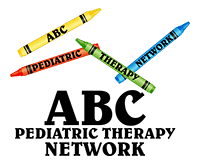At Age 3 My Speech And Language Skills Should Be……………………..
Three is a pretty important age. So many skills are being established as the foundation for others skills to build upon. Your child is becoming more social, making friends. It is important that children increase the number of words they know as well as practice these words. Practicing saying words increases their ability to be understood by others (intelligibility).
Take a look at the checklist below. How is your 3 year old doing with these skills? Then review the tips to encourage these skills.

- Is 75% intelligible to all listeners
- Converses in sentences
- Has vocabulary of 1000 words
- Can tell a story
- Name one or more colors correctly
- May have pronoun confusion (ex her/she) and verb tense errors
- Follows prepositional commands and can follow three simple verbal commands
- Ask questions
- Responds to Wh- questions
Here are some tips to encourage the above skills:
- Make sure you name everything in your child’s world. Use lots of words. Nouns, adjectives, verbs.
- Require that your child try to name everything and model the word for them if they struggle then ask your child to try again. Praise all their efforts.
- Begin teaching words with 1 word sentences progressively adding words as your child becomes successful. Example: “dog” progress to “big dog” then to “the big dog” then to “the big brown dog” then to “the big brown dog barks”.
- Really encourage your child to speak in longer sentences.
- When your child pronounces something incorrectly, just restate it correctly rather than telling them they are wrong.
- Ask lots of questions to encourage talking.
- Wh- questions are questions using “who”, “what”, “when” and “where”. Be sure to use these to allow your child to learn to process information. By asking questions, you are modelling for your child to ask questions as well.
- Ask you child about their day. This will encourage them to tell you a story, Be sure to model by telling them about your day.
- Give your child directions to follow. Examples: “get your shoes”, “put on socks”, “come to dinner”, “go to bed”, “brush your teeth”.
- Books are a great way to increase vocabulary, learn to tell a story and ask questions about the story. Use books that have real photos versus cartoon drawings as cartoon dogs can look like cartoon horses or cows. Photos allow learning to be clear.
If you try the above tips for a couple months and find that your child is struggling or shy, please reach out to your pediatrician. The speech therapists at ABC would love to teach you, the parent, the skills you need to encourage speech and language with your child. Language is required for your child to thrive both socially and intellectually. As a parent you truly want to facilitate confidence in your child so that he/she is willing to take risks to learn. Do not wait as it is easier to handle improving these skills early before behaviors begin that we have to counteract.
At https://www.abcpediatrictherapy.com, we look forward each day to “creating the best life for all children”. Including yours!
 Skip to content
Skip to content